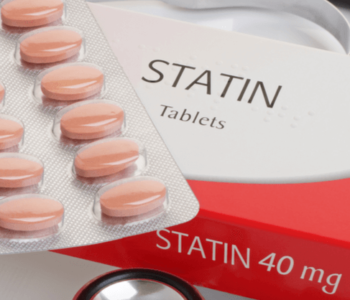In 30 Seconds…
Vitamin D is associated with a variety of benefits, from bone health to boosting your immune system.
Beyond those primary benefits, studies show that it could keep certain diseases at arm’s length, including seasonal influenza, heart disease, and multiple sclerosis.
Vitamin D may also help to regulate mood and decrease depression, while research suggests it’s beneficial for weight loss.
Vitamin D is one of the best-known vitamins around. It’s associated with several important health benefits, is found in a variety of foods, and is also the only nutrient your body produces when your skin is exposed to direct sunlight. Hence its nickname: the sunshine vitamin.
In this article, we explore 5 amazing benefits of vitamin D. We’ll explain the symptoms of vitamin D deficiency, outline how much you need each day, and show you where you can find it (in your diet and elsewhere), too.
5 Amazing Benefits of Vitamin D
1. It Strengthens Your Bones, Joints, and Teeth
The main benefit of vitamin D is its ability to build and strengthen your bones and joints. It does this by enabling the absorption of calcium in your gut. In short, without vitamin D, calcium can’t do its thing — and this dynamic duo also combines to prevent your bones from becoming weak or brittle.
Suffering from achy joints? We’ve taken a deep dive into the best vitamins for joints here.
Meanwhile, getting enough vitamin D can help you maintain oral health, too. Along with calcium, vital for strong teeth, vitamin D can prevent tooth decay and gum disease thanks to its anti-inflammatory properties and by keeping your immune system in check. Speaking of which…
2. Vitamin D Boosts Your Immune System
Beyond strong bones, the second recognised benefit of vitamin D is the vital role it plays in normal immune system function. It both activates and enhances your body’s defence against disease and infection. So much so that low levels of vitamin D are associated with a higher risk of illness and immune-related complications.
You can read more about vitamin D and your immune system here.
3. It Reduces Your Risk of Certain Diseases
In addition to its immune-boosting benefits, getting your fair share of vitamin D each day may also reduce your risk of catching or developing certain diseases.
Over the years, studies have suggested that vitamin D lowers your chances of developing seasonal influenza, decreases your risk of multiple sclerosis, and protects against cardiovascular disease, including hypertension (high blood pressure), heart disease, heart attack, and heart failure.
4. The Sunshine Vitamin Regulates Mood and Reduces Depression
There are many factors at play when it comes to mental health. But research has shown that diet in general — and vitamin D in particular — may help regulate mood and keep depression at bay. For instance, a 2008 double-blind study found that those with depression who received a vitamin D supplement noted an improvement in their symptoms.
5. It Can Help You Lose Weight
If you’re trying to lose weight, making sure you’re eating foods rich in vitamin D could help. These foods are healthy and tend to keep you feeling fuller for longer, meaning you’re unlikely to go over your calorie limit for the day.
This is also backed by a 2008 study, which found that subjects with obesity who took daily calcium and vitamin D supplements lost more weight than those in the placebo group. Researchers stated that the additional vitamins and minerals acted as an appetite suppressant.
A Note on Vitamin D and COVID-19
At the height of the pandemic, there were reports that vitamin D could reduce the risk of coronavirus. However, there’s not enough evidence to support this claim at present.
What Are the Symptoms of Vitamin D Deficiency?
There are several reasons why you might not get enough vitamin D, from being older and/or housebound to having darker skin. This can result in a range of symptoms.
Vitamin D deficiency manifests itself in several ways, including chronic pain, fatigue, depression, loss of bone density, infertility, and muscle weakness.
A 2014 study also found a “significant correlation” between alopecia areata (baldness) and vitamin D deficiency. Patients in the study with alopecia areata reported lower levels of vitamin D when compared to those without alopecia.
We’ve taken a closer look at the symptoms of vitamin D deficiency here, exploring its relationship to bone disorders such as rickets, osteomalacia, and osteoporosis.
How Much Vitamin D Do You Need Every Day?
According to the NHS, you need 10 micrograms or 400 international units (IU) of vitamin D a day.
The good news is that, for most people, we should get all the ideal amounts of vitamin D from direct sunlight between late March and the end of September. However, during the winter months, we may not be outdoors as often. This means paying closer attention to diet and vitamin D intake to make sure the symptoms of deficiency don’t creep in.
How to Get More Vitamin D in Your Diet
If you need more of the sunshine vitamin in your life, there are a variety of vitamin D-rich food sources you can incorporate into your diet. These include:
- Oily, fatty fish, such as salmon, trout, halibut, mackerel, and sardines (bonus: eating plenty of fish adds memory-boosting vitamins to your diet, while fish oil can also reduce cholesterol levels)
- Cod liver oil
- Egg yolks
- Beef liver
- Mushrooms
- And fortified orange juice, milk, and breakfast cereals.
Read more about healthy foods high in vitamin D here.
You can also take vitamin D supplements to top up your levels if you’re deficient. According to research, around 1 in 5 people in the UK have low vitamin D levels and would benefit from vitamin D supplementation.
And, of course, getting outside and (safely) enjoying the sunshine is often all you need to do to get enough vitamin D. Just remember to wear sunscreen, as too much sun exposure places you at increased risk of skin cancer.
Can You Take Too Much Vitamin D?
Despite all the ways vitamin D helps, you can still have too much of a good thing. High doses (over 100 micrograms per day) can cause an unhealthy calcium buildup in your system, weakening your bones and causing damage to your kidneys and heart.
Always discuss dietary supplements with your doctor or healthcare provider before you start taking them. You may not need them and could run the risk of doing more harm than good.

Help your body fight the good fight
Supplements are all-important when it comes to keeping your health at its best. All our health supplements are formulated by our medical team and packed with the best ingredients out there.
Key Takeaways…
The benefits of vitamin D are clear, but still over half the world’s population remain deficient in this vital nutrient. Make sure you’re on the right side of that stat by adding vitamin D-rich foods to your diet — and if you notice any symptoms of low vitamin D levels, seek medical advice. You could benefit from extra vitamin D, especially during the winter months.
Get inspired: Check out our Daily Health articles for more diet and lifestyle tips & advice.











